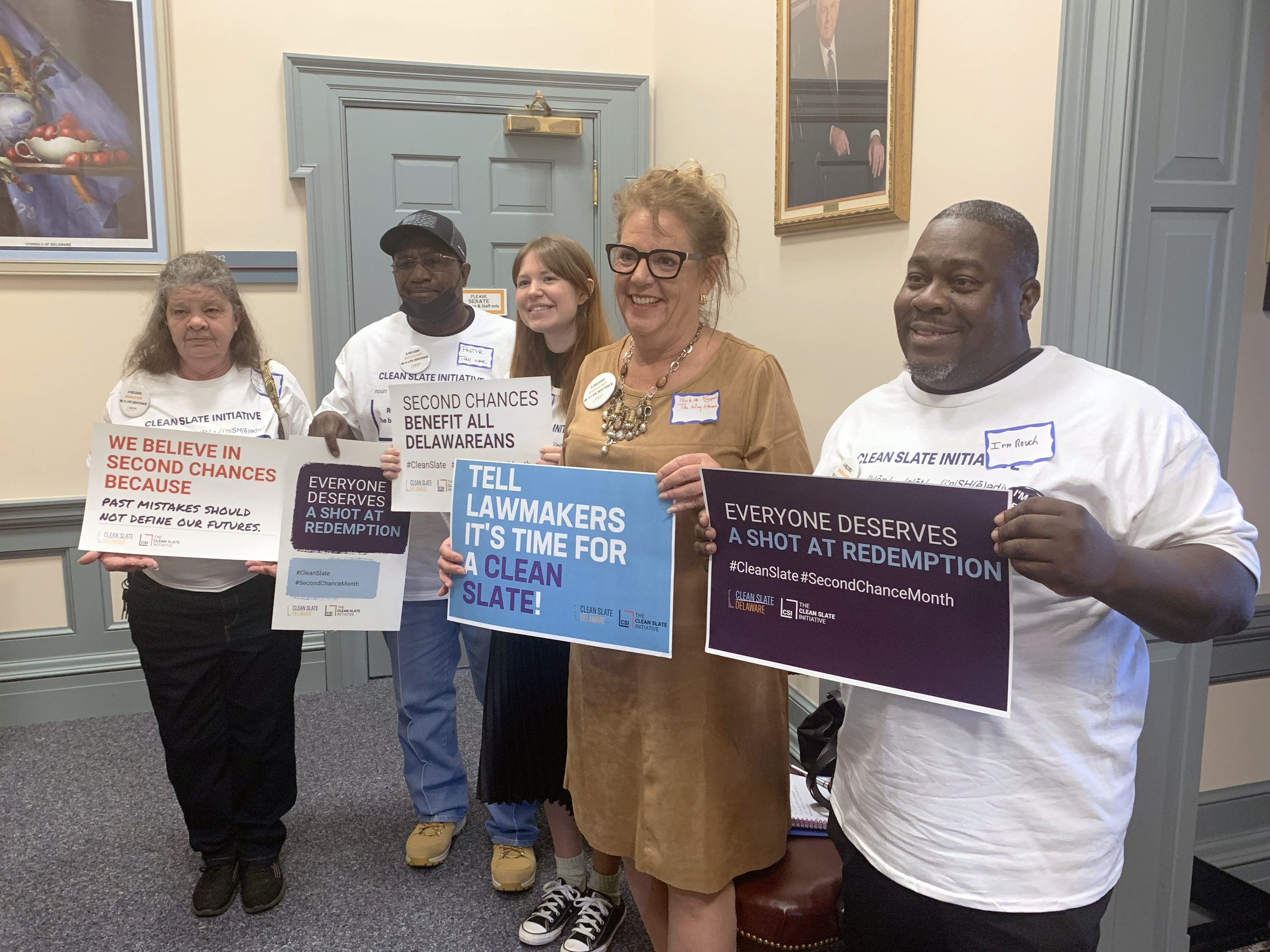Clean Slate Delaware Hosts CSI, Advocates, and Directly Impacted Leaders at State Capitol for Second Chance Month Lobby Day
Blog Post Contributed by John Reynolds, ACLU-DE Clean Slate Delaware Campaign Manager
Delaware’s Clean Slate Act will take effect in August 2024, but for people living with a record in Delaware, that implementation can’t come soon enough. That's why Clean Slate DE held its first Lobby Day on April 4, 2023, to educate lawmakers on the necessary reforms to make the 2024 implementation successful, accessible, and equitable.
Community advocates, directly impacted leaders, and Clean Slate DE partners, including the ACLU of Delaware, Delaware Center for Justice, and the Clean Slate Initiative, met with state legislators at Legislative Hall in Dover. We’re incredibly proud of the work these dedicated individuals did in bringing our key campaign issues to lawmakers’ attention. Advocates held group meetings with state senators and representatives regarding two campaign priorities: the successful implementation of the state’s automated record sealing law and ensuring all cases that do not include a conviction are eligible for automated expungement.
Successful implementation means eliminating the barriers that fines and fees present to the expungement process. Despite being among the first states to pass Clean Slate legislation, we’re the only “Clean Slate” state that limits eligibility for record clearance due to outstanding fines and fees. Living with a record can make financial barriers hard to overcome. Fines and fees related to a person’s record often go unpaid because people cannot access stable employment, housing, and opportunities for advancement due to their record.
Allowing individuals to clear their records regardless of what they owe is a common-sense solution to increase financial stability for Delawareans and help people pay their outstanding fines and fees. Delaware’s reputation as the “First State” should motivate us to set a forward-thinking example: bringing Delaware in line with known best practices will encourage all future states to tackle fines and fees when passing initial Clean Slate laws.
Lobbying groups also addressed the issue of non-conviction records. A substantial number of people with records in Delaware have records for non-convictions only, which means after their arrest, the person was either never charged or never convicted of a crime in that case — but they’re still saddled with the consequences of a record. A Delaware non-conviction record, just like a conviction record, remains publicly available and will appear on background checks unless it is expunged.
All cases that do not include a conviction should be eligible for the automated expungement process, including Delawareans serving a period of incarceration, probation, or parole. Currently, no one on probation or parole is eligible for any form of expungement, including for separate cases that did not result in a conviction. People should never be punished for cases decided in their favor, and records that never led to a conviction shouldn’t hinder anyone’s livelihood.
Over the course of the day, 45 advocates met with over 20 legislators seeking their commitment to support and act on these priorities. In addition to being prepped with pre-lobby training and talking point resources, many of the directly impacted advocates had received prior storytelling training. This enabled them to effectively communicate their experiences in the most impactful way possible when speaking to legislators.
The lobby day was received well by legislators across both parties, energizing advocates and lawmakers to work together toward a successful Clean Slate implementation in 2024.
Clean Slate efforts don’t end at the passage of the initial legislation, and that’s why this lobbying event was so important. The campaign and community must continue to engage legislators to navigate the complicated implementation process and ensure the law has its intended impact. Records are a substantial barrier to many life-sustaining goals, like finding a place to live and a good job. We must work together to ensure that Clean Slate's implementation is as smooth as possible for the Delawareans who need that relief — and paves a path for other states to successfully implement their own Clean Slate policies.










